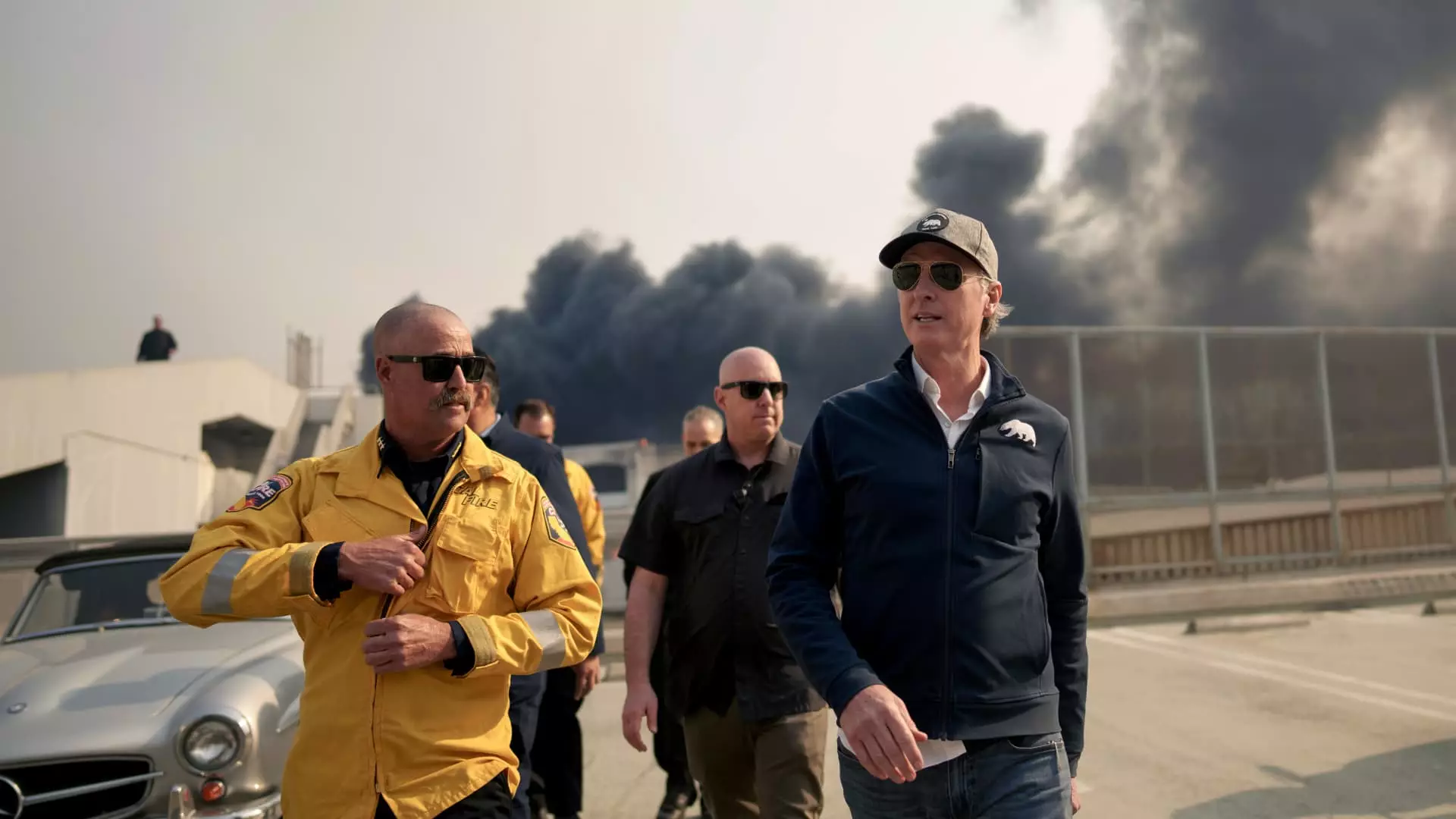The catastrophic wildfires that periodically ravage California have once again ignited heated political discourse, particularly in the wake of President-elect Donald Trump’s sharply critical commentary directed at Governor Gavin Newsom. As California reels from the devastating impact of these fires, the exchange highlights not only the urgency of emergency response but also the profound implications of misinformation and the fractious political climate.
In an interview recorded for NBC’s “Meet the Press,” Governor Newsom expressed his frustration at Trump’s tweets, which ladened with misrepresentations, sought to shift blame onto local leadership in California. Newsom’s candid observation that “mis- and disinformation don’t advantage any of us” underscores a critical concern: the interplay between accurate information and effective crisis management. In the age of social media, messaging can shape public perception and policy responses in real time. By invoking incendiary rhetoric rather than presenting fact-based assessments of the situation, Trump risks undermining the effective relief efforts needed to address these climate-induced disasters.
Trump’s erroneous claims about Newsom’s alleged actions concerning water management present a stark example of how rhetoric can replace reason in political discourse. The assertion that the governor had blocked measures to utilize Northern California’s water resources is patently false. Such statements do not merely mischaracterize Newsom’s policies but also confuse the public, complicating what should be a unified response to disaster. This tactic becomes even more alarming when one considers the potential ramifications for vital disaster aid and recovery efforts.
In response to the escalating crisis and the destructive fires that have led to immense loss of life, Newsom extended an olive branch by inviting Trump to witness the devastation firsthand. This invitation was emblematic of a broader attempt to transcend political rivalries in favor of collaborative efforts to bolster disaster response. By asking Trump to meet with affected citizens and recognize the contributions of firefighters and first responders, Newsom demonstrated a willingness to prioritize the needs of the people above partisan conflict.
However, the absence of a response from the President-elect raises questions about commitment to unity in the face of adversity. Newsom’s concern about Trump’s historical reluctance to provide federal disaster aid to politically opposed states detracts from the hopeful narrative of bipartisanship. By citing instances where Trump withheld assistance to states including Utah and Michigan, Newsom revealed a pattern that endangers thousands of Californians bereft of support in desperate times.
The fallout from Trump’s statements extends beyond individual conflicts to wider implications for crisis communication and governance. The blending of personal animosity with public policy fuels polarization, which cripples effective responses hinged on cooperation across party lines. As misinformation proliferates, notably through social media platforms, the need for fact-checking and accountability in communication becomes ever more crucial. This situation highlights the responsibility of public figures to convey accurate information, as their words carry weighty consequences.
Moreover, the ongoing wildfires should serve as a catalyst for comprehensive discussions on climate policy, forest management, and state-federal relationships. These intersecting issues demand collaborative solutions rather than blame-shifting, given the multifaceted nature of wildfires as a consequence of climate change, housing policies, and natural resource management.
The intersection of environmental crises and political rhetoric reveals profound challenges facing American governance today. As California confronts devastating wildfires, the state’s leaders must navigate the treacherous waters of misinformation and political rivalry to ensure that the needs of their constituents remain at the forefront. Acknowledging the human toll of such disasters while combating the distortions that surfaced during this crisis is essential for fostering resilience and building a foundation for recovery in a politically charged landscape.


Leave a Reply